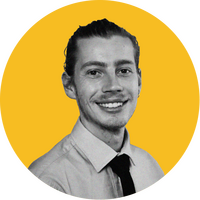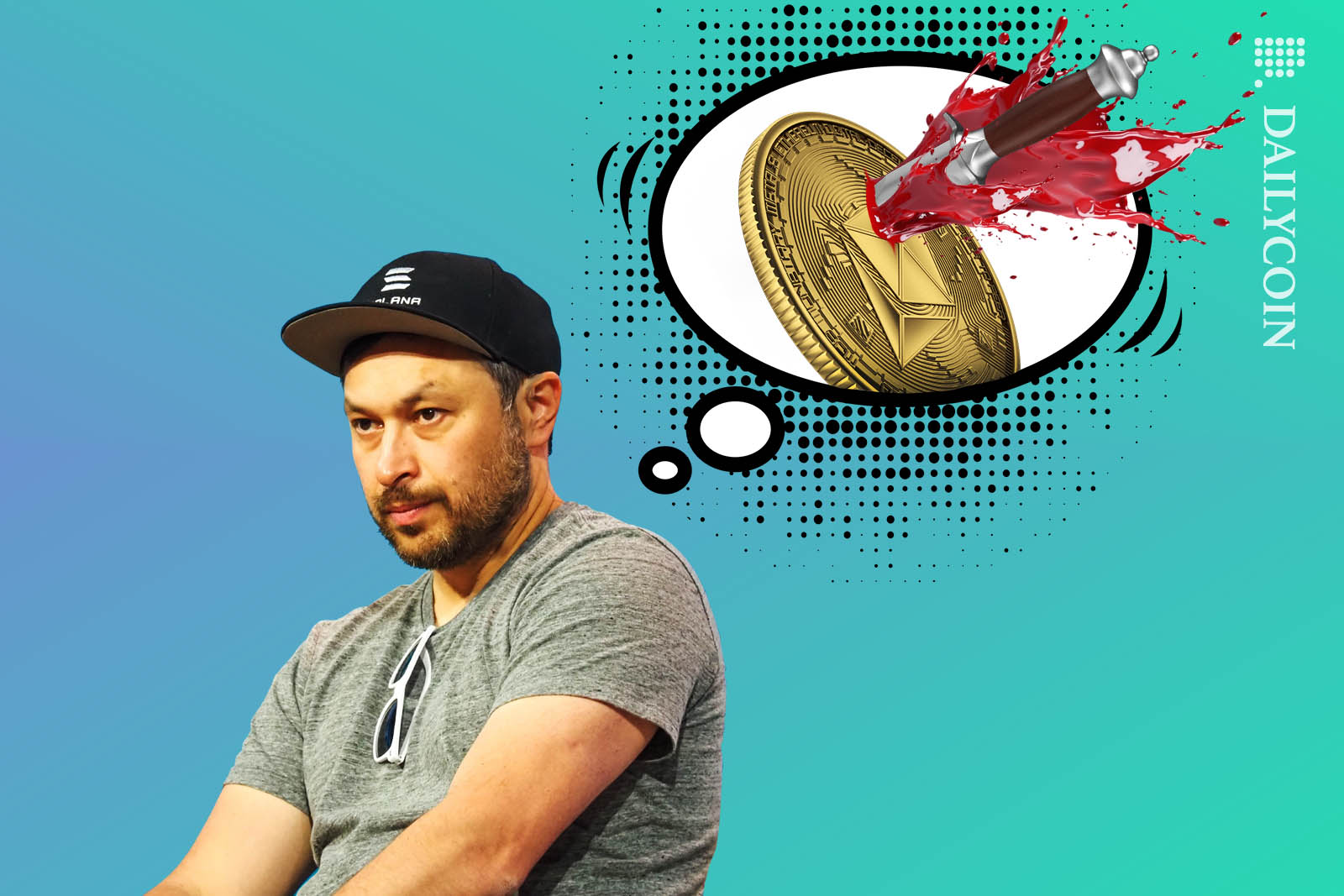
Anatoly Yakovenko, the co-founder of the Solana (SOL) network, could be considered your stereotypical ‘dude-programmer.’ Depending on who you talk to, ‘Toly’ is just as likely to be found catching waves off the coast of California than hunched over a desk, surfing the blockchain.
But make no mistake; cycling and surfing trips aren’t stolen afternoons of leisure for Anatoly Yakovenko. The Solana Labs co-founder credits these moments of distracted enjoyment with giving birth to his brightest and best ideas.
With a growing range of popular Solana dApps, the ecosystem is establishing itself as the most performant Layer One blockchain in the Web3 world. Let’s look at the software engineer who made it all possible.
Table of Contents
Who is Anatoly Yakovenko?
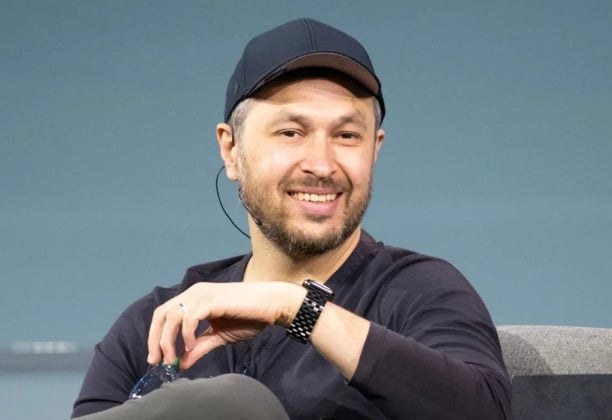
While newcomers to the world of blockchain technology might recognize him better as an X shapeshifter who sports a different Solana NFT profile picture each week, Anatoly Yakovenko is more than just a name on a whitepaper.
Sponsored
A Ukrainian computer engineer turned American entrepreneur, Solana Labs co-founder Anatoly Yakovenko is the mastermind behind the Solana blockchain and the Proof-of-History consensus mechanism. This unique approach to securing decentralized networks gives Solana its trademark transaction speeds and unmatched scalability.
But did a humble software engineer go from a small-time tech startup to sitting at the helm of the cryptocurrency’s leading Ethereum (ETH) Killer?
Early Life and Education
Born in what is now Ukraine in the late 1970s, Anatoly Yakovenko was a child of the Soviet era, a time when the mere thought of decentralized systems would’ve certainly ruffled a few feathers.
Sponsored
Yakovenko was a tech enthusiast from a tender age. He later moved to the United States, where he pursued his passion, completing a bachelor of computer science at the University of Illinois Urbana-Champaign. It might seem ridiculous now, but some professors advised against this line of study, given the unwinding collapse of the dot-com bubble.
Pre-Crypto Era
Before diving headfirst into the blockchain whirlpool, Anatoly Yakovenko was already dipping his toes in the tech industry. According to LinkedIn, he co-founded Alescere following his studies, a Voice over Internet Protocol (VoIP) service. The short-lived startup inspired a young Yakovenko hungry for building innovative technologies.
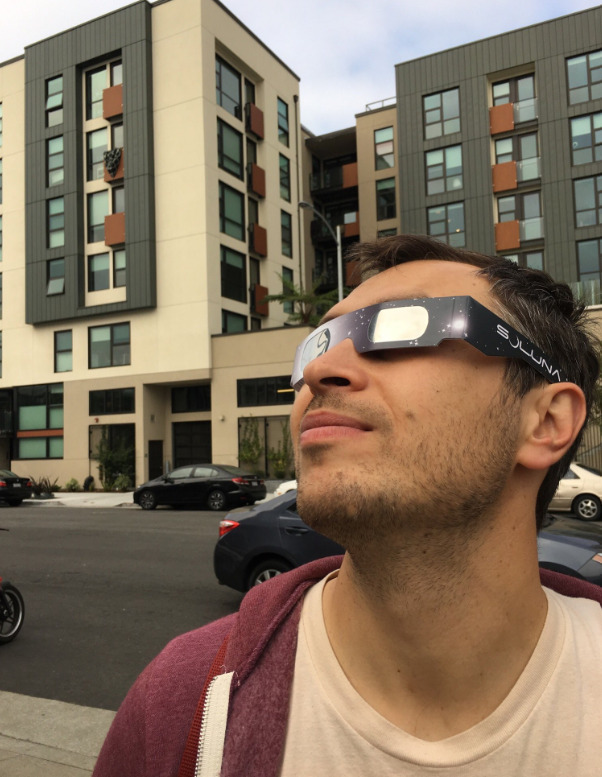
Yakovenko joined Qualcomm, a global leader in wireless tech innovation, to develop his skills faster and climb the tech world ranks. He began his Qualcomm tenure as a software engineer but quickly made a name for himself, eventually becoming the company’s Senior Staff Engineering Manager.
While at Qualcomm, Yakovenko was deeply involved in hardcore engineering work, from operating systems to virtual and augmented reality products. But the blockchain bug had already bitten him. Around 2013, he became an early adopter of Bitcoin (BTC) and Ethereum, keeping a close eye on the burgeoning industry.
The Birth of Solana
The year was 2017, and Yakovenko had just left Qualcomm. He dabbled in a few other tech gigs, including stints at Mesosphere and Dropbox, but something was missing. The blockchain space was calling, and Yakovenko was captivated by its possibilities.
Anatoly Yakovenko was fascinated by Bitcoin and Ethereum but couldn’t help pondering the limitations of existing blockchain technologies. While gas fees were less of an issue in 2017 than now, legacy networks were still excruciatingly slow.
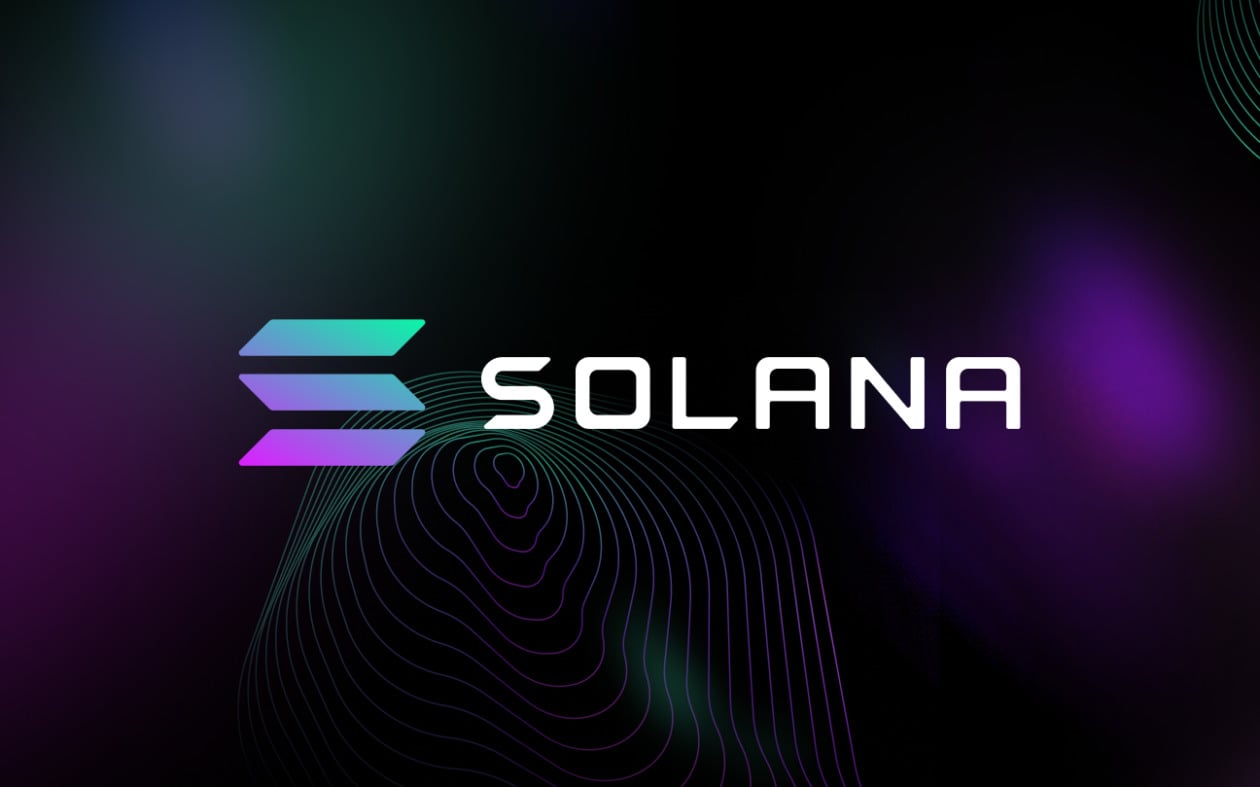
To solve this lingering problem, the co-founder of Solana conceived the Proof-of-History consensus mechanism. This novel method of verifying blockchain transactions and data promises to optimize the scalability of decentralized networks, making blockchain technology a suitable platform for the masses.
Alongside Raj Gokal and fellow Qualcomm alumni Greg Fitzgerald and Stephen Akridge, Yakovenko got to work and laid the necessary foundations for the world’s fastest blockchain and smart contract platform. All it needed now was a name, but the team didn’t need to look far for inspiration.
Their revolutionary network would be named after Solana Beach in California, where the team regularly surfed and worked through ideas together, away from the confines of their computer screens.
Yakovenko’s Stirring Defence of Solana
Despite its meteoric rise, Solana has had its fair share of critics. Decentralization enthusiasts dragged The network through the mud, claiming that Solana’s predatory tokenomics, venture capitalist allocations, and expensive validator requirements would be a bloodbath for retail investors.
Adding to Solana’s mounting woes during 2021-2022, the blockchain suffered several network outages. While this discredited a network supposedly designed for ‘high performance,’ it also showed that demand for the network and its rapidly growing DeFi and NFT ecosystems attracted huge numbers of users.
The straw that broke the camel’s back came in November 2022 during the collapse of the FTX cryptocurrency exchange. Sam Bankman-Fried was a strong advocate of Solana, and both FTX and Alameda Research still hold large amounts of SOL tokens.
Responding to these criticisms, Yakovenko acknowledges some of these flaws. Speaking with Blockworks, he and Raj Gokal reflected that it was ‘a bittersweet thing’. While FTX’s unraveling caused significant damage to SOL’s price, it also freed the network from the influence of a large stakeholder.
The pair also reflected that every major network has had catastrophic moments like the Ethereum DAO Hack or Bitcoin’s Mt. Gox collapse. In an interview with Fortune, Yakovenko concluded that it felt ‘like ‘ripping the bandaid.’
Since the collapse, Solana has enjoyed consistent growth in almost every metric. Yakovenko maintains Solana Breakpoint attendees are doubling yearly while on-chain transactions, validator nodes, and active wallet addresses continue to rise.
What’s Next for Anatoly Yakovenko?
While Solana continues to grow in market cap and ecosystem development, Anatoly Yakovenko is far from done. He’s actively involved in pushing the boundaries of what Solana can achieve.
Firedancer, Solana’s next big infrastructure upgrade, is a new independent validator client expected to help Solana reach a maximum transaction throughput of 0.6-1.2 million TPS (Transactions per second).
On the Flipside
- The crypto world loves cult icons like Vitalik Buterin, Charles Hoskinson, and Satoshi Nakamoto. It seems a shame to highlight Anytoly Yakavenko alone when celebrating Solana’s achievements since a collective of engineers and entrepreneurs co-founded Solana Labs.
Why This Matters
The Solana network is one of the largest and most popular Layer-1 blockchains and smart contract platforms in the cryptocurrency industry. With a vision of onboarding the masses through familiar products like Web3 smartphones, Solana is a leading contender to usurp Ethereum’s reign.
FAQs
Anatoly Yakovenko was born in Ukraine when it was part of the Soviet Union.
According to numerous on-chain metrics and growing developer activity, there are plenty of reasons to expect Solana to recover. However, it’s important always to research and remember that the crypto market is highly volatile and unpredictable.
Anatoly Yakovenko is the lead founder and CEO of Solana Labs, the company behind the Solana blockchain.
